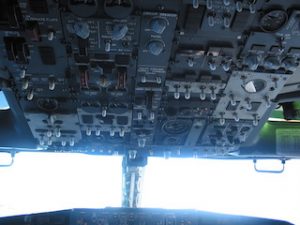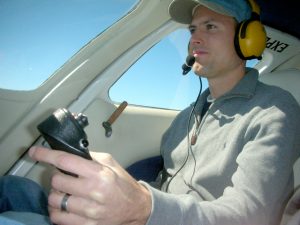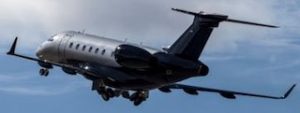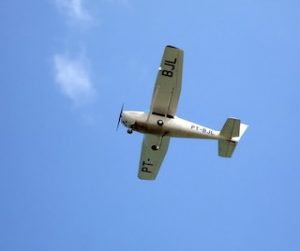Airline Pilot Standard (APS) Course Can Advance Your Career
 In the realm of aviation, continuous learning and qualification upgrades are essential for career advancement. One significant step in a pilot’s career is completing the Airline Pilot Standard (APS) course. This course is designed to bridge the gap between basic flight training and the advanced skills needed for airline operations. But at what stage of a pilot’s career should they undertake this course, and how does it benefit their pursuit of an international flying career? This article provides an in-depth analysis of these questions, exploring the ideal timing for the APS course and its profound impact on a pilot’s career trajectory.
In the realm of aviation, continuous learning and qualification upgrades are essential for career advancement. One significant step in a pilot’s career is completing the Airline Pilot Standard (APS) course. This course is designed to bridge the gap between basic flight training and the advanced skills needed for airline operations. But at what stage of a pilot’s career should they undertake this course, and how does it benefit their pursuit of an international flying career? This article provides an in-depth analysis of these questions, exploring the ideal timing for the APS course and its profound impact on a pilot’s career trajectory.
Airline Pilot Standard (APS) course
The APS course, often integrated with the Multi-Crew Cooperation (MCC) training, provides advanced training to prepare pilots for the complexities of airline operations. It covers essential topics such as Crew Resource Management (CRM), flight deck procedures, and advanced handling techniques for multi-crew jet aircraft. The APS course is recognised as a critical step for pilots aiming to transition smoothly into airline roles, ensuring they possess the competencies required for safe and efficient operations in a commercial aviation environment.
Ideal stage for completing the APS course
1) After Obtaining a Commercial Pilot License (CPL) with Instrument Rating (IR)
The optimal time to enroll in the APS course is typically after a pilot has obtained their Commercial Pilot License (CPL) with an Instrument Rating (IR). At this stage, pilots have mastered the foundational skills of flying and are proficient in operating aircraft under various weather conditions. The CPL and IR qualifications signify that a pilot has the necessary skills to fly commercial aircraft and navigate using instruments, which are prerequisites for the advanced training provided in the APS course.
2) Prior to type rating training
Before embarking on type rating training for specific aircraft, pilots benefit greatly from completing the APS course. The skills and knowledge gained from the APS course provide a strong foundation for type rating, which focuses on operating a particular type of aircraft. The APS course equips pilots with advanced CRM skills and a thorough understanding of multi-crew operations, making the subsequent type rating training more manageable and effective.
3) When transitioning from general aviation to airline operations
Pilots transitioning from general aviation to airline operations should consider the APS course as a crucial step. General aviation typically involves single-pilot operations or small crew environments, whereas airline operations require seamless coordination within larger, multi-crew teams. The APS course prepares pilots for this transition by emphasizing the teamwork, communication, and procedural adherence essential in an airline cockpit.
4) For career advancement within regional airlines
Pilots currently employed by regional airlines aiming to advance to major or international airlines should undertake the APS course. While regional airline experience provides valuable flight hours and operational knowledge, the APS course offers advanced training that aligns more closely with the standards and expectations of major airlines. This additional qualification can be a deciding factor in achieving career progression.
How the APS Course advances a Pilot’s international flying career
1) Enhanced skill set
The APS course significantly enhances a pilot’s skill set, making them more competent and confident in handling complex flight operations. The course covers advanced topics such as:
-
- Advanced CRM techniques: Effective communication, leadership, and decision-making skills critical for multi-crew environments.
- Jet handling and performance: Proficiency in operating jet aircraft, understanding high-speed flight dynamics, and managing jet-specific systems.
- Standard Operating Procedures (SOPs): Familiarity with airline-specific procedures and protocols, ensuring adherence to industry standards.
- Emergency procedures: Training in handling in-flight emergencies, improving a pilot’s ability to manage crises and ensure passenger safety.
2) Improved employability with major airlines
Major and international airlines prioritize hiring pilots with advanced qualifications, such as the APS course. The course demonstrates that a pilot has undergone rigorous training and possesses the competencies required for high-stakes, multi-crew operations. This makes APS-certified pilots more attractive candidates during the hiring process, increasing their chances of securing positions with reputable airlines.
3) Smooth transition to international operations
International airline operations often involve more complex routes, diverse weather conditions, and stringent regulatory requirements. The APS course prepares pilots for these challenges by providing comprehensive training in advanced navigation, international regulations, and cross-cultural communication. This preparation ensures a smoother transition to international flying, enhancing operational efficiency and safety.
4) Foundation for future training and certification
The APS course lays a solid foundation for further training and certification, such as type rating for specific aircraft models and advanced captaincy programs. The skills and knowledge gained from the APS course are directly applicable to these advanced training programs, making subsequent learning experiences more effective and streamlined. This continuous professional development is essential for pilots aiming to achieve senior positions within the aviation industry.
5) Increased confidence and professionalism
Pilots who complete the APS course typically experience a significant boost in confidence and professionalism. The rigorous training enhances their decision-making abilities, situational awareness, and overall competence in the cockpit. This increased confidence translates to better performance, higher job satisfaction, and a more fulfilling career in aviation.
APS course curriculum
1) Theoretical training
The theoretical component of the APS course covers a wide range of topics essential for advanced flight operations, including:
-
- Crew Resource Management (CRM): Principles of teamwork, leadership, and communication within a multi-crew environment.
- Advanced flight theory: In-depth understanding of jet aircraft systems, high-speed aerodynamics, and performance characteristics.
- Standard Operating Procedures (SOPs): Detailed study of airline-specific procedures and protocols.
- Emergency and abnormal procedures: Strategies for handling in-flight emergencies and abnormal situations.
- International aviation regulations: Overview of international flight regulations, airspace classifications, and navigation requirements.
2) Practical training
The practical component of the APS course involves extensive hands-on training, typically conducted in advanced flight simulators. This training includes:
-
- Simulated flight scenarios: Practice in realistic flight scenarios, including normal operations, abnormal situations, and emergencies.
- Multi-crew coordination: Exercises designed to enhance teamwork and communication within the cockpit.
- Jet handling techniques: Training in the unique handling characteristics of jet aircraft.
- Navigation and flight planning: Advanced training in navigation techniques, flight planning, and fuel management.
- Debriefing and feedback: After each simulator session, pilots receive detailed feedback on their performance and participate in debriefing sessions to discuss areas for improvement.
Choosing the right APS course provider
1) Accreditation and reputation
Selecting an accredited and reputable training provider is crucial for ensuring the quality of the APS course. Accreditation ensures that the training meets industry standards and follows best practices. A provider with a good reputation is likely to offer high-quality instruction and have a track record of producing competent pilots.
2) Experienced instructors
The quality of the instructors is a key factor in the effectiveness of the APS course. Instructors should have extensive experience in airline operations and advanced CRM principles. They should be able to provide valuable insights and practical advice based on their own experiences in the cockpit.
3) State-of-the-art facilities
The facilities and equipment used in the APS course should be modern and well-maintained. This includes advanced flight simulators that accurately replicate the aircraft and scenarios pilots will encounter in real-world operations. High-quality facilities ensure that the training is as realistic and effective as possible.
4) Comprehensive curriculum
The curriculum of the APS course should be comprehensive and cover all the essential topics needed for advanced flight operations. It should include both theoretical and practical components, with ample opportunities for hands-on practice in the simulator.
Step up the career ladder with APS
The Airline Pilot Standard (APS) course is a pivotal step in a pilot’s career, providing advanced training that prepares them for the complexities of airline operations. The optimal time to undertake this course is typically after obtaining a Commercial Pilot License (CPL) with an Instrument Rating (IR) and prior to type rating training. Additionally, the APS course is essential for pilots transitioning from general aviation to airline operations and for those seeking career advancement within regional airlines.
Completing the APS course significantly enhances a pilot’s skill set, employability, and confidence. It provides a strong foundation for further training and certification, ensuring a smoother transition to international flying and improving overall operational efficiency and safety. By choosing the right APS course provider and committing to this important training, pilots can greatly enhance their career prospects and achieve success in the dynamic and challenging world of aviation.










